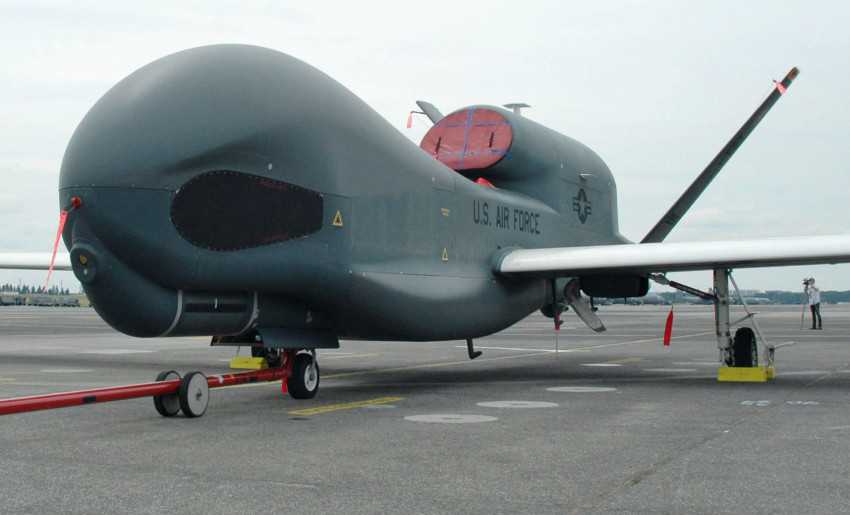Japan overturns decision to cancel U.S. drone acquisition
09 January, 2022

Japan overturned in 2020 its decision to cancel acquisition of U.S.-made reconnaissance drones due to their massive costs out of consideration to then U.S. President Donald Trump, who was promoting U.S. weapons exports, according to sources close to the matter.
The government of then Prime Minister Shinzo Abe had told Washington in the spring of 2020 that it would not purchase the Global Hawk drones, but revoked the decision in the summer after Tokyo scrapped in June that year its planned deployment of U.S.-developed land-based Aegis Ashore ballistic missile defense systems, they said.
The about-face was prompted by concerns that cancellation of the Global Hawk acquisition would "anger Mr Trump, who has insisted on exporting U.S.-made weapons," according to a source familiar with the matter.
Read More : US bases in Iraq and Syria come under attack
The policy change reflected "excessive consideration for Trump," the source said. Acquisition costs for the drones, whose deployment by the Japan Air Self-Defense Force could begin by March, stood at 61.3 billion yen ($528 million), while operation and maintenance expenses amount to 13 billion yen annually.
Japan's Defense Ministry aims to deploy three Global Hawk drones at the ASDF Misawa Air Base in Aomori Prefecture, northeastern Japan, for around 20 years at a total estimated cost of 263.7 billion yen.
In March last year, the ASDF launched a unit of 70 personnel at the Misawa base to prepare for the drone deployment.
In 2014, the Defense Ministry decided to purchase the Global Hawk drones to monitor North Korean military facilities after Pyongyang carried out its third nuclear test in 2013.
However, the remotely controlled unmanned drones are not capable of protecting themselves or launching attacks. "It is impractical to fly them in the airspace of other countries," a Defense Ministry official said.
The Global Hawk drones, which are controlled from the ground via radio and satellite communications, collect images and electronic information from an altitude of more than 15,000 meters, higher than commercial aircraft.
While Japan was eager to use the drones for surveillance in the East China Sea, where Tokyo is engaged in a territorial dispute with Beijing, the Global Hawks that Japan intends to deploy are designed to monitor land areas and modifying them for sea observation would incur massive costs.
A review of the acquisition plan led by then Defense Minister Taro Kono also took into consideration a possible rise in maintenance costs as the U.S. Air Force planned to retire the type of drone to be deployed by Japan, with production of major component parts already halted.
Kono announced in 2020 the decision to ditch the planned Aegis Ashore missile interception system deployment, citing technical problems and swelling costs amid strong local opposition.
Source: japantoday.com
